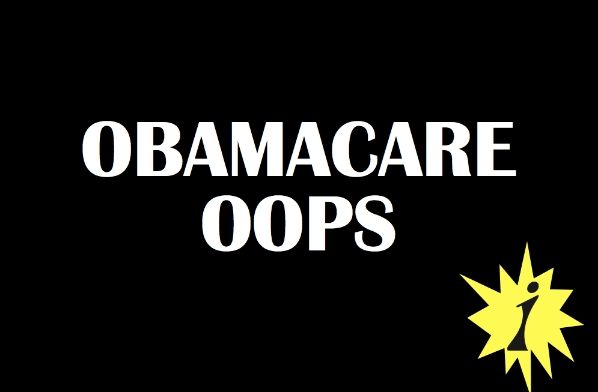While the snow storm of 2016 dominated the headlines earlier this week, this piece of news may have flown under your radar: ObamaCare sign-ups are projected to come up short of estimates by some 40 percent.
The bipartisan Congressional Budget Office (CBO) lowered it estimates of ObamaCare sign-ups, predicting that far fewer Americans than were anticipated will enroll in the system this year. It expects about 13 million people to sign up when open enrollment concludes, down from last year’s enrollment prediction of 21 million people.
The Obama Administration has been warning that recruitment will be hard this year, but this is worse than their projections. This is just what the health insurers don't want to hear. UnitedHealth threatened that it may pull out of ObamaCare next year, and others join UnitedHealth in teetering on whether to follow suit. If sign-ups are this much lower than expected, their alarm bells are probably ringing.
In addition, the CBO expects taxpayers to pick up a larger tab for those enrolled in ObamaCare than in the past. About 11 million people are expected to receive taxpayer-funded subsidies to help them pay for their monthly premiums, which is 3 million people more than last year. We will spend a whopping $18 billion more for those subsidies in 2016 than last year – reaching a total of $56 billion.
Open enrollment wraps up next week and unless the Administration can pull a rabbit out of a hat, they will have to face the fact that ObamaCare is just not that attractive enough for the hoped-for numbers of people to sign up for coverage. If anything, the CBO expects that uninsured Americans will seek coverage directly from an insurer instead.
The New York Times reports:
The Obamacare marketplaces have helped millions of Americans get health insurance, but they have not caused the kind of immediate and drastic plunge in the ranks of the uninsured that analysts had hoped for before the law was passed. It has proved harder to spread the word about new health insurance, and harder yet to persuade people to shell out money for new health insurance they hadn’t had in their household budgets.
…
The revisions to early estimates show how it’s possible to say both that the Affordable Care Act has created a “path to universal coverage” — as Hillary Clinton did at the last Democratic presidential debate — and that it has left nearly 29 million uninsured, as Bernie Sanders responded.
…
Some analysts have said that the slower-than-expected growth in health insurance is just that, and they predict that people will eventually sign up for Obamacare plans, as they become better informed and they become more aware of the law’s tax penalties for failing to sign up. Others are concerned that the slow initial enrollment means expectations should be permanently scaled down.
If we take away the subsides, ObamaCare coverage is not affordable to most of those enrolled and, even with those subsides, many struggle to keep up with the out of pocket costs such as high deductibles.
Perhaps now we can have a serious discussion about how to really reform health care and provide access and good medical care in a market- and patient-based system. If so, it will be the debate we didn't have when Democrats rammed this unpopular system through Congress without a single GOP vote.


